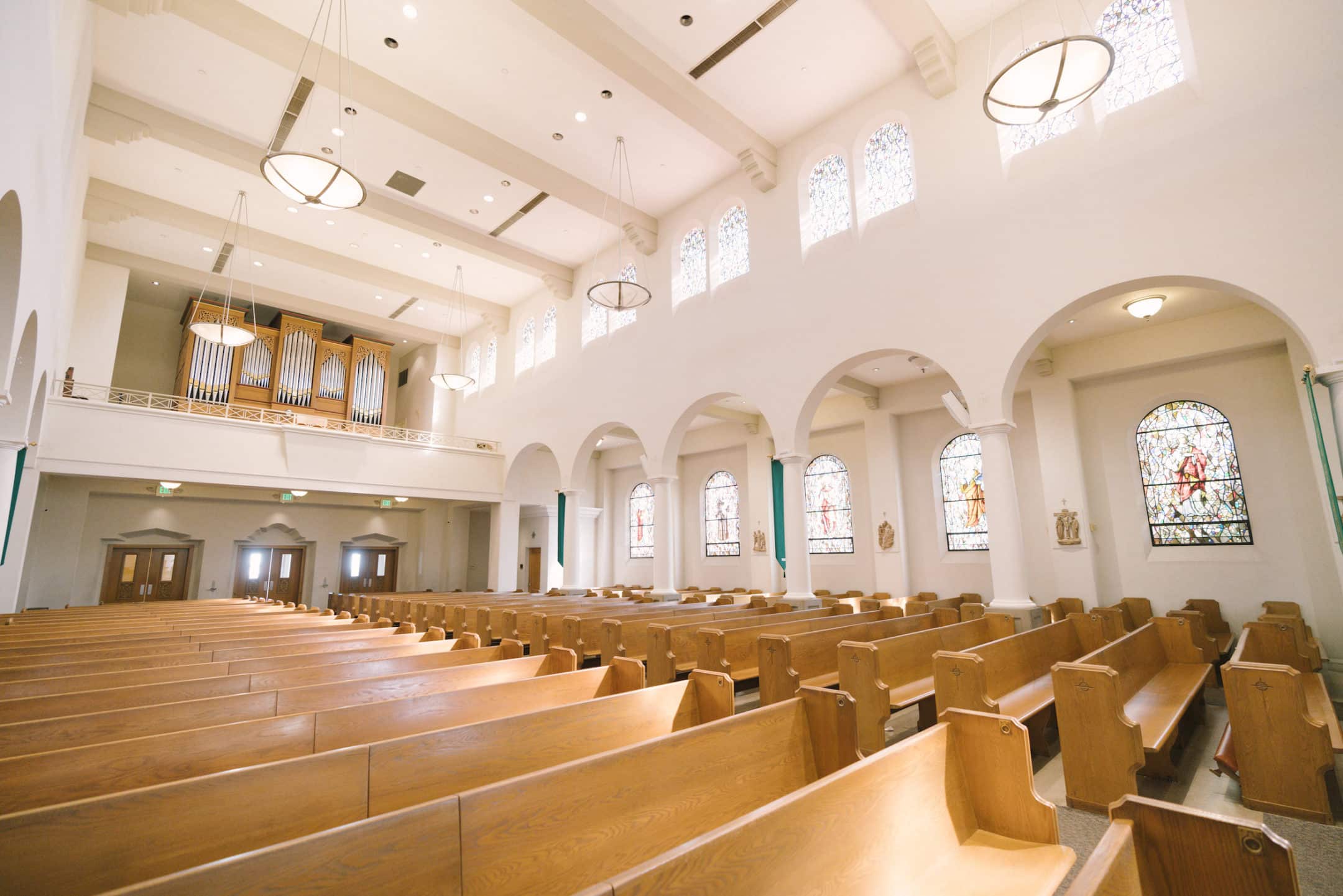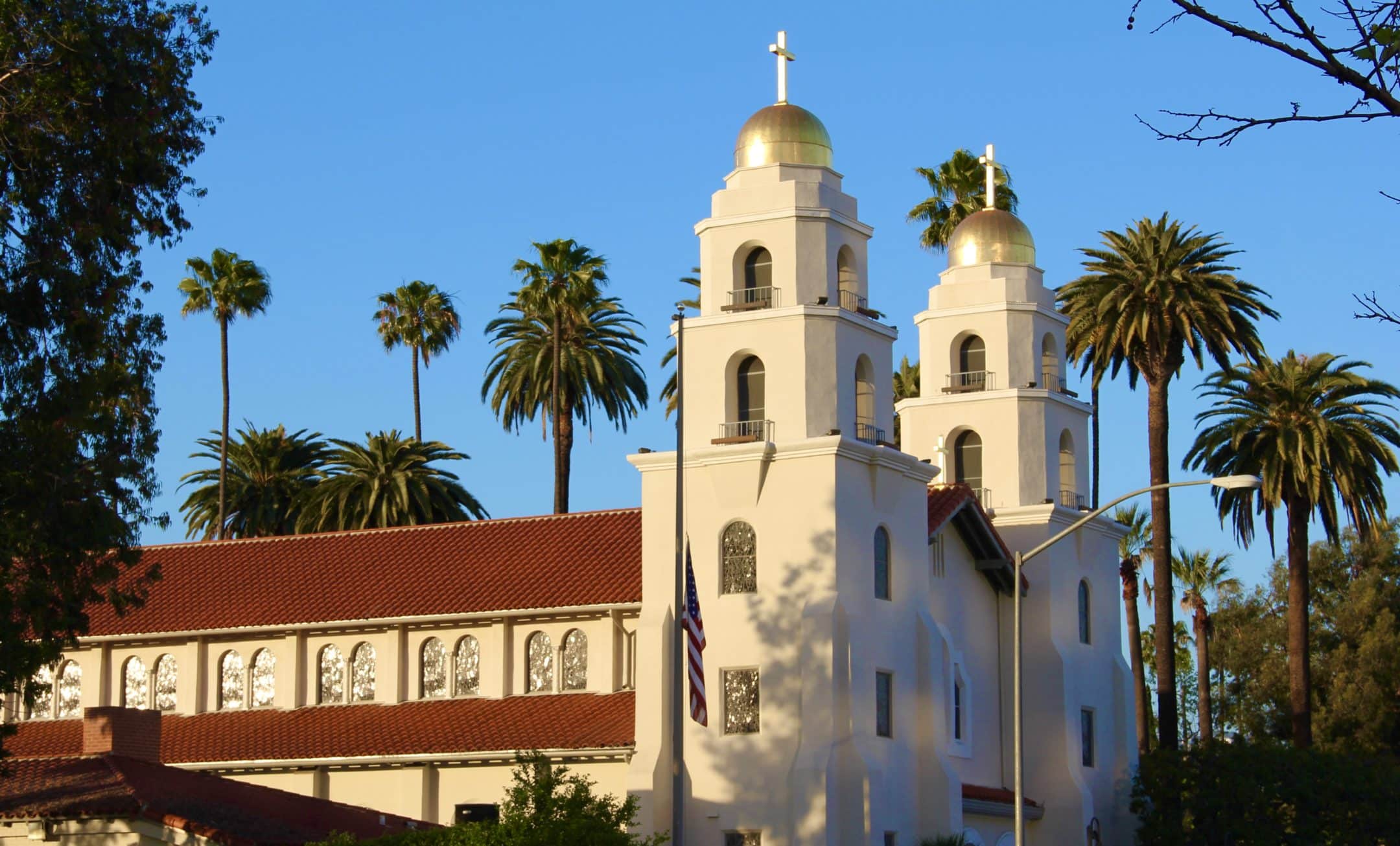“The attainment of union is the concern of the whole Church, faithful and shepherds alike.” Decree of the Second Vatican Council on Ecumenism – Unitatis Redintegratio, Paragraph 5
The Catholic Church is called to participate in the quest for unity by promoting Ecumenical and Interfaith relations, as mandated by the Second Vatican Council. All the faithful are urged to seek unity with their separated Christian brothers and sisters and to acknowledge and respect the truth found in all religions. It is therefore essential that each parish, as a part of its mission, seek ways to further unity.
This mission can be facilitated by a Parish Ecumenical and Interfaith Representative (PEIR).
What is a PEIR?
The representative is a parishioner who has been designated by the pastor and tasked with communicating and coordinating local ecumenical and interfaith activity. There may be one representative for both, ecumenical and interfaith outreach. Or there may be two, each handling one aspect. The PEIR works directly with the pastor and reports to him.
Who can be a PEIR?
The PEIR is a layperson who is an active parishioner and who has completed the Certification Program offered by the Archdiocesan Ecumenical & Interreligious Officer entitled “Ecumenical and Interreligious Relations: A Catholic Ministry”. Please click here for further information.
A basic understanding of the Catholic Church’s history of interaction with our fellow Christians, and relations with non-Christians, as well as knowledge of the different denominations and world religions is absolutely essential to the successful establishing of relationships and bridge-building, which the PEIR is called to do.
The PEIR’s responsibilities include:
- Fostering a deeper ecumenical and interfaith awareness among parishioners by providing information (historical and current) to parishioners and by organizing ecumenical and interfaith events at the parish.
- Answering questions parishioners may have relating to ecumenical and interfaith matters and assisting in contacting the Archdiocesan Officer for Ecumenical and Interreligious Affairs, if needed.
- Building relationships with Christian churches of other denominations as well as non-Christian faith communities in the neighborhood and surrounding areas.
- Encouraging, facilitating and coordinating parish participation in local ecumenical and interfaith activities.
- Advertising ecumenical and interfaith events to the parish community and helping parishioners connect with local ecumenical and interfaith organizations.
- Representing the parish, when appropriate, with local ecumenical and interfaith organizations and at events held by other faiths communities.
- Serving as a liaison between the parish and the Archdiocesan Officer for Ecumenical and Interreligious Affairs.
- Collaborating with PEIRs at other Catholic parishes.

Examples of Opportunities for Parish Ecumenical and Interfaith Involvement
Father Thomas Ryan, CSP, in his book “Christian Unity – How You Can Make a Difference” devotes an entire chapter to the Parish Ecumenical Representative and includes an extensive list of practical ideas and opportunities for parish ecumenical involvement. Many of these suggestions can be adapted to an interfaith setting as well. Here is a selection from the book:
- Social gatherings to which other Christians, clergy and religious leaders may be invited so they can meet those they perhaps have heard of but never encountered.
- Church socials, suppers, fundraisers and picnics as an expression of Christian sharing. Invitations to all Christian in the area could be extended. When they are received, they should be accepted.
Invitations to both the above may be extended to interreligious guests. However, dietary restrictions (regarding food and drink) of other religions should then be observed.
- Publish news from other local churches in parish bulletins and on parish social media platforms and inform those churches of your events.
- Place Christmas, New Year’s, Easter (and the like) greetings in local newspapers jointly with other churches. Place holy day greeting to the Jewish community, Muslim community, and so on, in local newspapers jointly with other churches.
- Plan a “Tour of Churches” with commentary offered on each one’s devotional particularities, worship space, furnishings, style, and the like.
- Organize an ecumenical concert. Most churches have choirs. By providing interchurch sponsorship and organizing an arrangement and program committee, an ecumenical concert can be staged readily and successfully.
- Interfaith prayer services. On national holidays or communal responses to events such as natural disasters or tragedies, people in the local community experience a natural desire to come together in prayer. Such prayer should be developed with sensitivity to the beliefs and traditions of the partners in dialogue and cooperative activity.
- Speaker exchange program. In the search for mutual understanding, partners in interchurch dialogue extend invitations to competent representatives of each other’s denominational traditions to address their congregations on a given topic.
- Share occasionally in the actual worship of other Christians, respecting the discipline of one’s own church as well as that of the host church in regard to Holy Communion.
- Attend the prayer rituals of another faith community as respectful observers.
- Gather together congregational leaders in your neighborhood for a retreat or meeting to discuss joint activities in worship, education, or service.
- Initiate service projects among area churches to respond to needs such as homelessness, housing, unemployment, transportation for the elderly and disabled, and care for refugee families.
- Pray for each other! Pray for the unity of the church.
Above excerpts are taken from “Christian Unity – How You Can Make a Difference”, Thomas Ryan, CSP, Paulist Press, 2015 – Used with permission
If you are interested in becoming a PEIR, please click here to learn more about the required Certification Course offered by the Archdiocesan Ecumenical & Interreligious Officer entitled “Ecumenical and Interreligious Relations: A Catholic Ministry”.
For more information about becoming and/or serving as a PEIR, please contact
Sandra Bossi
Ecumenical & Interfaith Representative of Good Shepherd Church, Beverly Hills
At ChristianUnityGS@gmail.com
or visit gsbh.org/ecumenicalandinterfaith
